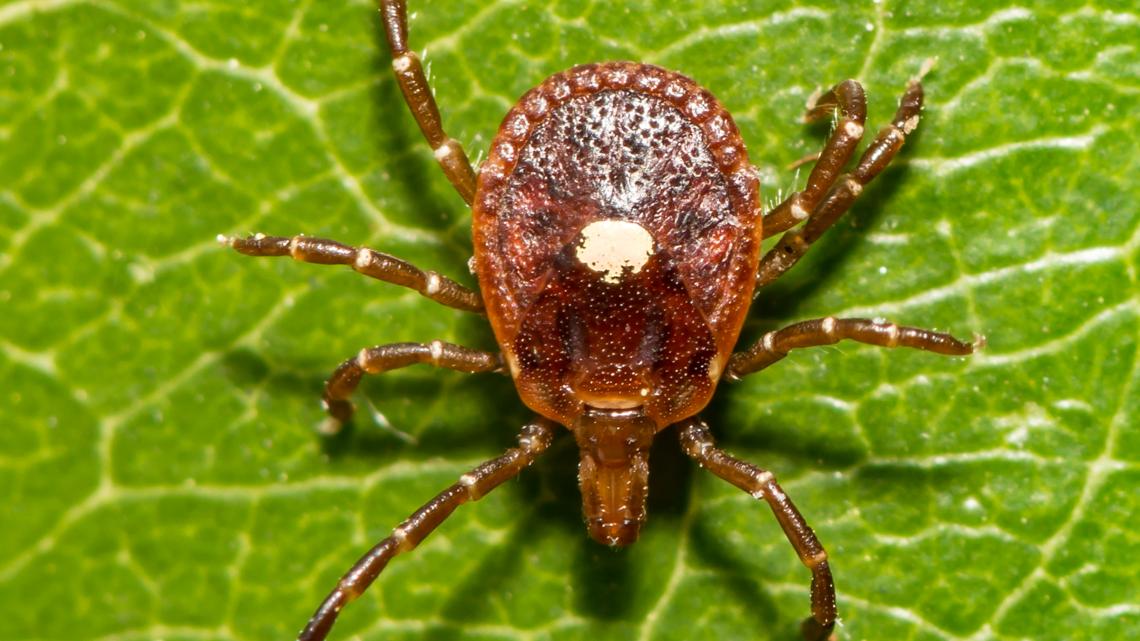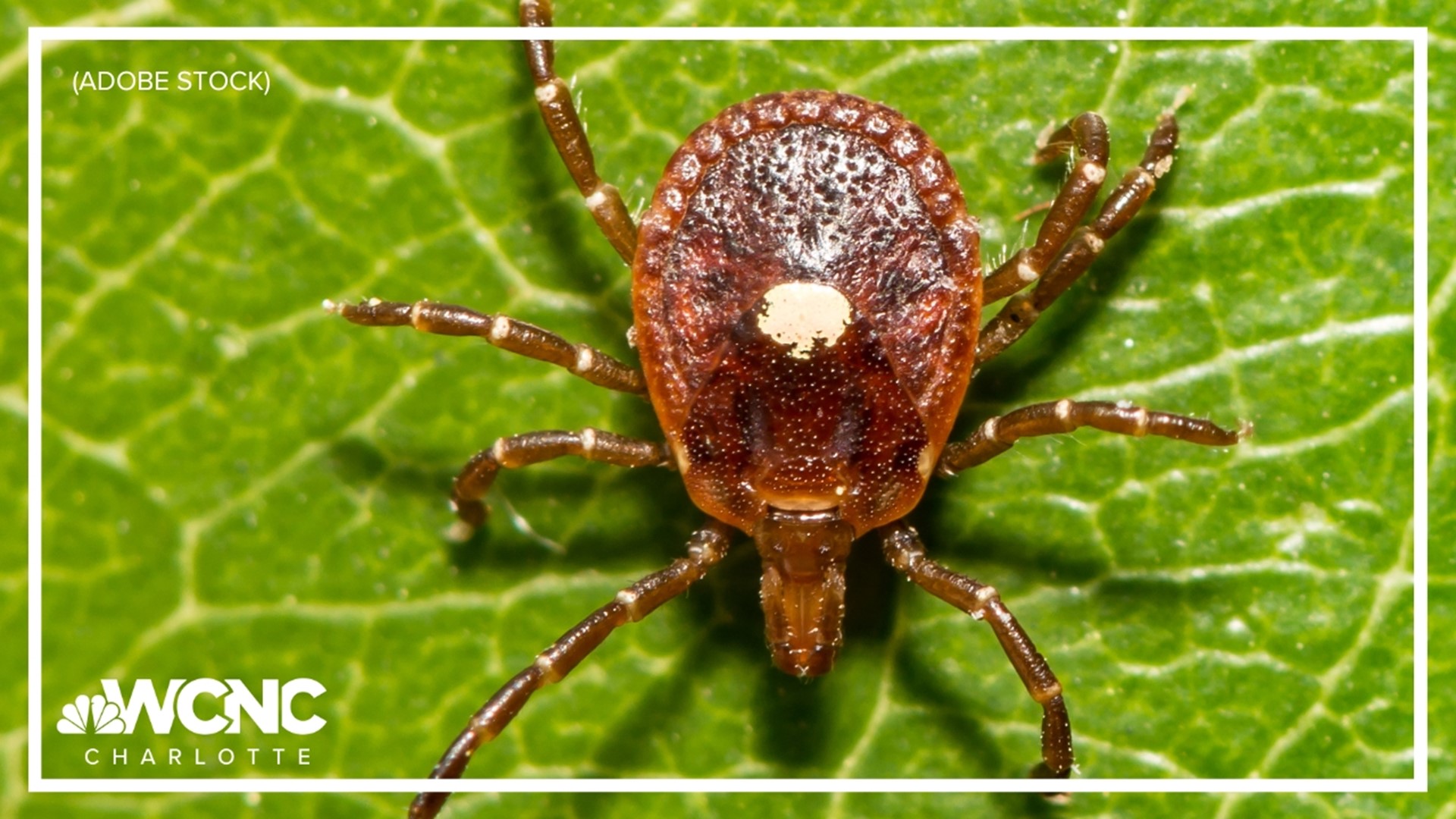CHARLOTTE, N.C. — Ira McGee has spent a lot of time in the North Carolina outdoors. A tick bite wasn't always an event to which he gave much thought.
"I live in a rural area, and I farm and I work in the woods," McGee said.
Then, in 2019, McGee said a very unassuming meal prompted a frightening hospital visit.
"I ate a hamburger--red meat," McGee said. "When I went to the hospital the first time, we didn't know what was going on, except I had an allergic reaction."
It took a couple of medical trips to pinpoint the cause of his new symptoms: a tick bite he had gotten about a week before.
According to an alert from the Centers for Disease Control and Prevention, a bite from a Lone Star tick can inject a carbohydrate called Alpha-gal (or galactose) into a person and spark an allergic reaction to other common products containing the compound. Those products can include pork, beef, rabbit, lamb, and venison. It can even sometimes cause reactions from gelatin, cow's milk, and milk products.
The CDC reports the Lone Star tick, which has a single white spot on its back, is primarily found in the Southeast but has spread over the last 20 to 30 years as far west as Texas and as far north as Maine.
Dr. Gray Norris, a physician with Carolina Asthma and Allergy Center, said many more people are coming forward with symptoms of Alpha-gal, in part due to heightened awareness of the condition. However, it can still be difficult to diagnose.
"At the initial onset of this, it typically is a viral-like illness," Norris said. "You feel tired, you may feel muscle-achy and fatigued. That will resolve within the course of several days, and that's so nonspecific. It's usually hard for people to make much of it, and then a period of time later, usually weeks later, is when the delayed reaction starts happening to the meat."


In July, the CDC urged people to learn more about Alpha-gal syndrome. The agency notes that over the last ten years, roughly 110,000 people have gotten this diagnosis. However, up to 350,000 more could be suffering from symptoms and not know why.
Allergic reactions can range from mild to life-threatening:
- Hives or itchy rash
- Nausea or vomiting
- Heartburn or indigestion
- Diarrhea
- Cough, shortness of breath, or difficulty breathing
- Drop in blood pressure
- Swelling of the lips, throat, tongue, or eyelids
- Dizziness or faintness
- Severe stomach pain
Further complicating diagnosis is the atypical timeline for the reaction to start after eating meat.
"Traditional food allergies occur very quickly," Norris said. "You eat something you're allergic to -peanut or whatever - and within minutes, almost always within a very short period of time, you have some sort of reaction: hives, throwing up, swelling of the lips."
"Alpha-gal is different because it is very delayed," Norris added. "It occurs between three to eight to nine hours later. So, it is not an immediate reaction. It's been too long since you ate. That kind of clouds the issue right there. "
Norris said avoiding meat is the only action to take until the condition runs its course, which could take several years, and preventing the allergy starts with preventing the bite. That's something McGee said he is much more careful about these days when he goes outdoors.
"I normally would make sure I wear socks and long pants and then spray," McGee said.
Contact Vanessa Ruffes at vruffes@wcnc.com and follow her on Facebook, Twitter and Instagram.

